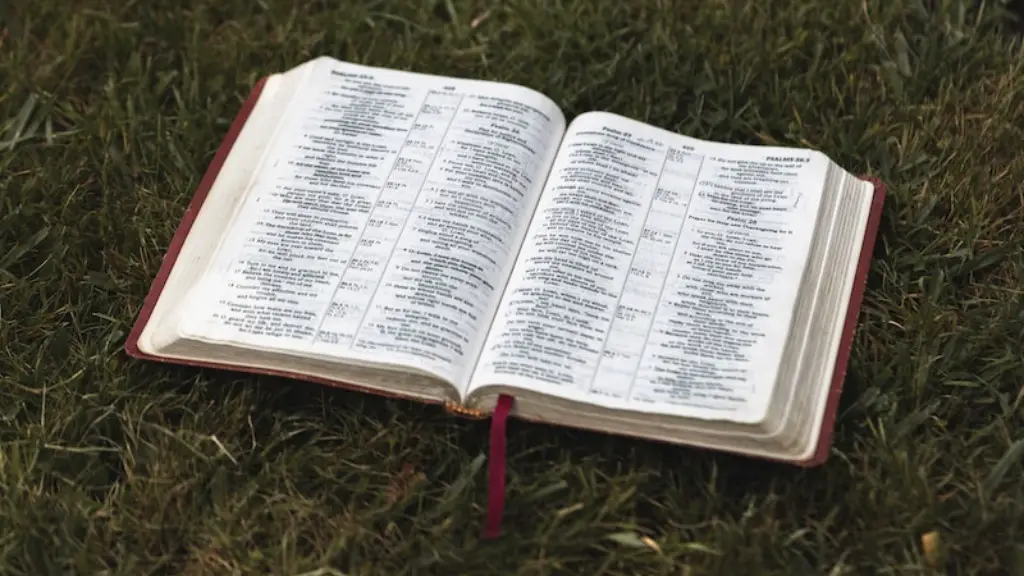Introduction:
The story of what happened at Mount Sinai in the Bible is one of the most remarkable events in religious history. God made a covenant with humanity on Mount Sinai. This covenant is recorded in the Old Testament, in particular the book of Exodus, which is the second book of Torah. Although the narrative of what happened at Mount Sinai differs according to several perspectives, there is often the same climax. God descended upon the mountain, and spoke the Ten Commandments.
The Biblical Account
The main passages that provide a description of what happened at Mount Sinai come from the Book of Exodus. According to this book, the Israelites were camping beneath the mountain when God suddenly descended. Thunder and smoke marked His presence, as He proclaimed the Ten Commandments. This proclamation was accompanied by the sound of trumpets, causing the people to quail in fear. Moses, the prophet and leader of the Israelites, descended from the mountain a few days later with the Laws that would serve as the foundation of their religion.
Historical Basis
Many experts believe that the event of Mt. Sinai is allegorical and is not based on a historical event. Some look to other similar events in Canaanite or Egyptian history as evidence of an ancient ritual, such as a covenant between a deity and mortal, or a ritual surrounding the cult of the storm god. It is likely that the authors of the Bible drew upon these earlier stories, adapting them to suit their own narrative purposes.
Significance of Mt. Sinai
Despite whether or not the event of Mt. Sinai actually happened as described in the Bible, it remains a powerful story for many. The covenant made between God and the Israelites, His chosen people, is seen as a foundation of Western civilization. It also serves as an example of God’s mercy, as He was willing to make a covenant with a people who were often rebellious and faithless. Mount Sinai is a place to which Jews, Christians, and Muslims alike can look for inspiration and understanding of God’s laws.
Jewish Perspective
For Jews, Mount Sinai is one of the most sacred places in the world. It was at this site that the Ten Commandments were revealed, and it is believed that no sin can ever enter the mountain. Many Jews have pilgrimages to Mt. Sinai, either to learn more about the history of the place or simply to bask in its spiritual power. Jewish studies often include discussion of the event of Mt. Sinai, both as part of the narrative of the Bible and as an example of spirituality in action.
Christian Perspective
Christians follow the narrative of the Bible, and thus view the event of Mt. Sinai as being associated with the birth of their faith. It is believed that the Ten Commandments and the words of Moses, as recorded in Scripture, are the foundation of the teachings and practices of Christianity. Thus, Mt. Sinai is often viewed as a special place, a holy place, one in which a great spiritual transformation took place.
Muslim Perspective
Muslims also believe in the importance of the Ten Commandments, which they also view as the words of God. As such, Mt. Sinai can be seen as a site of great significance to them. Although not specifically stated in the Qu’ran, Muslims do believe that an event such as the one described in the Bible must have taken place. The event is seen as a great demonstration of God’s mercy and power, and is often discussed in Islamic studies.
Analysis
No matter what perspective one takes on Mount Sinai, it is clear that its significance has endured for thousands of years. Whether it was a real event, or whether it is simply an allegorical tale of faith, it is a story that has been reinterpreted and adopted by Jews, Christians, and Muslims alike. Thus, Mount Sinai represents a joining of faith and power, an example of what can happen when humans accept the word of God.
More Perspectives
Today, the event of Mt. Sinai remains highly contested. Although the narrative of the Bible is accepted by some, there are others who reject it in full or in part. For example, many scholars argue that the story is not based on any historical or archaeological evidence, and is instead an allegorical narrative that serves as a lesson on faith and duty. Similarly, there are those who believe that while the event did take place, it was more of a ritual involving the worship of the storm god.
Rituals and Practices
The event of Mt. Sinai, and the covenant it established, has had a tremendous influence on ritual and practice in the Judeo-Christian tradition. For example, the Ten Commandments are still studied intensely, as they serve as the basis for many laws that are still in place today. In addition, the tradition of pilgrimage to Mount Sinai continues to this day, as Jews, Christians, and Muslims make the journey in order to connect to the spiritual power of the mountain.
Impact of the Narrative
The narrative of what happened at Mount Sinai in the Bible has had a long-lasting effect on world history. From the Ten Commandments to the tradition of pilgrimage, this event has helped to shape many of the beliefs and practices that are still part of mainstream society today. Thus, even if the events of Mt. Sinai are disputed, it is clear that its legacy is still very much alive.
Esoteric Significance of the Narrative
For many, the story of Mt. Sinai is seen as more than a historical narrative. Instead, it is viewed as an esoteric mystery, the uncovering of which can provide profound insights into the spiritual life. In particular, some believe that the journey from slavery to freedom that was undertaken by the Israelites can be used as a metaphor for the spiritual journey that we must all undertake. Thus, the narrative of Mt. Sinai is seen as a call for us to make our own personal journey of transformation.
Interpretation
Finally, the event of Mt. Sinai is an important opportunity for self-inquiry and interpretation. While many interpretations of the narrative can be found, each individual must decide what the story means to them personally. To some, Mt. Sinai may represent an opportunity to experience the divine, while to others it may represent freedom or spiritual guidance. Ultimately, what happened at Mount Sinai in the Bible serves as a reminder of human potential and the power of faith.



